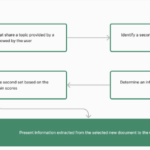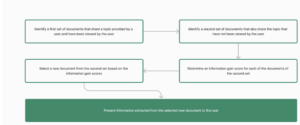Imagine you’re trying to sell your house. The interior rooms are beautifully decorated, worthy of a magazine. But,
the foundation is crumbling and you have wiring leading nowhere. In this case, it doesn’t matter how nice the
furniture is because your house is not going to pass inspection or sell.
This is why technical SEO is so important for websites. You can have the best content in the world (like the fancy
furnishings in your house), but if your site structure is bad (like the home’s shaky foundation), and you have broken
links leading nowhere (like the bad wiring), Google will have trouble crawling it (like the failed inspection), and
users won’t find it (it won’t sell).
While Google has become more advanced at crawling and indexing website information, they still need a little
help from your site. If they have any trouble understanding what your website is about, they’ll move to the next
site.
According to Search Engine Journal, “Good website content should be complemented by a strong technical SEO
foundation.”
This foundation is built on two main elements: website performance and crawlability. Let’s go through each in a
little more detail.
Website performance is the speed at which web pages are downloaded and displayed in a user’s web browser.
Basically, website performance tells you how fast your website is, and it has a huge impact on your chance of
ranking organically in the SERPs. If a website takes too long to load, it usually has a higher bounce rate — especially
on mobile. If Google can surface comparable webpages that have a faster load time, they will. This is because
they’re solving for their users by helping them find answers to their questions to solve their problems faster.
There are many factors that play into site speed, such as large images, uncompressed code files, and others. A
comprehensive technical SEO audit will uncover the issues slowing your site and identify ways to improve its
overall performance.
Crawability is the other foundational element to technical SEO, and it has to do with your website’s crawl budget.
Crawl budget is the number of pages Google crawls and indexes on a website within a given time frame. This is
important because if Google doesn’t index a page, then it won’t be able to rank. If your website exceeds its crawl
budget, you’ll end up with pages that aren’t indexed and therefore stand no chance of ranking.
Crawl budget is primarily a concern for very large websites over 10,000 pages. It also may be a concern if you’ve
recently added a lot of pages to your site, or if you have a variety of redirects. These can both impact Google’s
ability to crawl and index all the pages on your site.
With that in mind, even if you have a site under 10,000 pages, you can optimize your crawl budget by avoiding
duplicate content, long redirect chains, orphaned pages, and infinite spaces (like calendars that go 100 years into
the future).
Crawlability is also affected by your site speed — it’s all interconnected.
The best way to determine how your site is performing and how to improve it is to conduct a technical SEO audit.
If you’re an SEO specialist taking on a new client or joining a new company, this may be one of the first tasks you do.
You can learn more about both website performance and crawlability in the video, How to Perform a Technical
SEO Audit.
But before you get started with auditing the website and writing a report, there are a few things to keep in mind.
In order to make technical SEO work, you (the SEO professional) need to be able to work effectively with your
website developer and designer. There are many items that will arise during your technical SEO audit that require
a designer or developer to implement. So, it’s best to make sure you know who these people are in your
organization and that you’re aligned.
Finally, remember that technical SEO is not the be-all end-all when it comes to SEO. You need more than a solid
technical structure to win at SEO, just like you need more than a foundation to sell a house. However, having that
strong foundation makes everything else a bit easier.



















